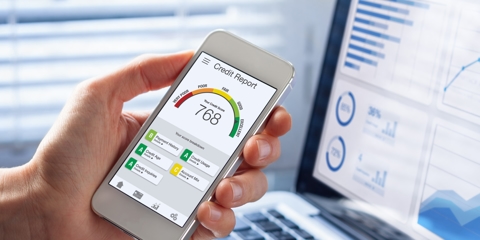Filing for bankruptcy in Georgia can feel overwhelming and intimidating. If you approach this process the right way, though, you can find debt relief and take a load of stress off your shoulders. With the help of a qualified Georgia bankruptcy lawyer, you’ll have the chance to reorganize and rebuild your life — without creditors and collections companies constantly hounding you.
Before you file for bankruptcy, there are a few things you should do first. These five tips will help you get the process started and make life easier as you move forward with help from an expert Atlanta bankruptcy attorney.
- Start gathering your financial documents
- Understand what type of bankruptcy is right for you
- Research which debts your bankruptcy will cover
- Don’t move your assets around before consulting a Georgia bankruptcy attorney
- Talk with a qualified bankruptcy attorney
1. Start Gathering Your Financial Documents
As you prepare to file for bankruptcy in Georgia, go ahead and gather as many of your financial documents as you can. Some of the documentation you’ll need during the filing process will include (but is not limited to):
• Two years of tax documents
• Recent bank statements
• Proof of income
• Mortgage statement and car loan statement (if you have them)
• Copies of collections letters, bills, and other documentation of your debts
Your bankruptcy attorney will likely need other documents from you, but if you get these together now, you’ll have a head start on the things you’ll need to streamline the process.
2. Understand What Type of Bankruptcy is Right for You
Should you file for Chapter 7 bankruptcy or Chapter 13 bankruptcy? What’s the difference, and does it matter to you and your debt? Basically, with Chapter 7, the majority of your debts will be cancelled. If you file chapter 13, you’ll set up a repayment plan for your debts.
At first, you might think, “Let’s go with cancelling my debt!” But don’t jump to this conclusion too quickly. Each type of bankruptcy has its own pros and cons, and it’s important to weigh these before you make a decision.
For example, Chapter 7 bankruptcy is typically good if you have exempt property and unsecured debts. These might include credit cards, medical debts, or garnished wages. However, not everyone qualifies for Chapter 7. If your income is too high, you may not be able to cancel your debt, but you can most likely reorganize and create a manageable repayment plan with Chapter 13 bankruptcy. Also, if you’re facing foreclosure, Chapter 13 may help you keep your home.
The best way to understand the difference between these two types of bankruptcy — and to determine which is best for you — is to discuss your case with an Atlanta bankruptcy attorney.
3. Research Which Debts Your Bankruptcy Will Cover — and Which Debts it Won’t
If your credit card debts have gotten out of control and you qualify, Chapter 7 bankruptcy could be a great opportunity for a clean slate and debt relief. However, not all debts are dischargeable through Chapter 7 bankruptcy. For example, Chapter 7 doesn’t cover student loan debt or debts incurred in lawsuit judgments.
Chapter 13 bankruptcy covers some debts that aren’t dischargeable with Chapter 7 bankruptcy in Georgia. Some of these include:
• Student loans
• Most debts from lawsuit judgments
• Non-support debts incurred during a divorce
• Some non-criminal government fees or fines
You can see, just from this list, how you can benefit from having a knowledgeable Georgia bankruptcy lawyer on your side. Without an attorney, you could file for bankruptcy and still feel the burden of your biggest debts.
4. Don’t Move Your Assets Around Before Talking with a Georgia Bankruptcy Attorney
Some people make the mistake of trying to “fool the system” before filing for bankruptcy. They’ll move assets around or sign them over to a relative. This is almost always a bad idea. Whether you believe your property is exempt or not, don’t make any big changes without first consulting an experienced Atlanta bankruptcy attorney.
5. Talk with a Qualified Bankruptcy Attorney in Atlanta
After everything we’ve said here, this tip might seem obvious, but it’s actually the most important of all. Don’t try to file for bankruptcy on your own. Chapter 7 and Chapter 13 bankruptcy laws in Georgia are complicated and nuanced. With the right attorney by your side, you can save a lot of money and stress, and the whole process will be much easier for you.
If you are considering filing for bankruptcy in Georgia, please contact us at Holston & Huntley today at (404) 620-3337 or schedule a complimentary consultation online.





